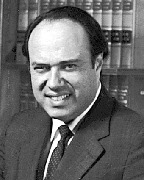The Boston Globe has covered the recent problems between a housing coop board and a potential buyer of a portion of a luxury building on Beacon St. in Boston. According to the Globe, the board wants to exclude a buyer who has the financial resources to be a tenant-shareholder in the coop.
Notwithstanding the buyer's financial resources the tenant-shareholders on the board do not want this individual as a neighbor. There is a dispute between "old money" and "new money," according to the Boston Globe. Apparently the coop documents prohibit a resale without the board's "approval" of the buyer.
A tenant-shareholder in a coop is bound by the common requirement that the board must consent to any sale in the building. Coops want to be more like exclusive country clubs than multi-family housing.
Such a veto power would probably not be legal in a condo where each unit owner owns his own space and pays his own mortgage and real estate taxes.
In a coop, the justification of such a veto power is that owners have one real estate tax bill and one blanket mortgage. Therefore, so the argument goes, the tenant shareholders in a coop are dependent on the financial strength of each other.
While our state legislature is attempting to correct the exclusionary powers of a coop board, a better answer would be to convert from a cooperative to a condo or at the outset to form a condo rather than a coop.
With interest rates low, preserving a blanket mortgage is less compelling. Also, real estate taxes will in all likelihood be the same with either form, unless there is a Ch. 121A tax agreement in place. Chp. 121A is a special law applicable to the City of Boston. Therefore, normally there is no good reason to opt for a cooperative. The condoform of ownership is the better choice. While there are at present over 200,000 individual condo units in Mass., there are few coops.
Saul Feldman is a real estate attorney with Feldman & Feldman, PC Boston, Mass.
Tags:









